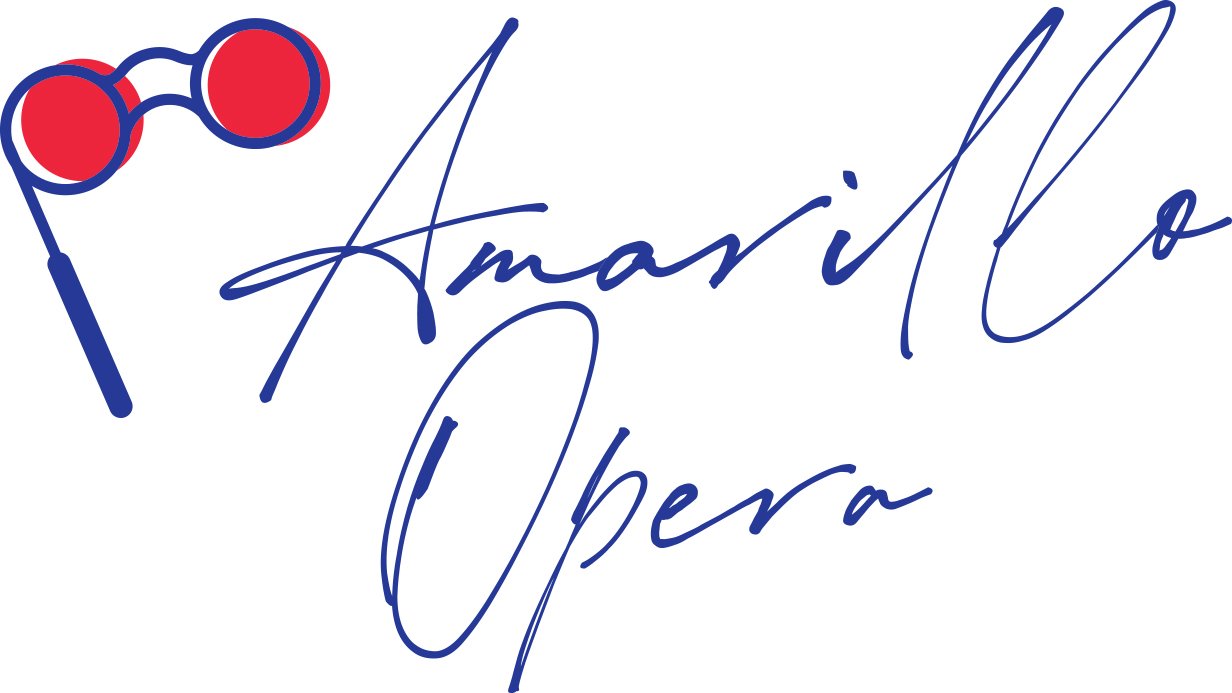OPERA ETIQUETTE
Q: What should I wear to the opera?
A: There's really no "dress code" for opera. Some people will come wearing black tie, others will come wearing blue jeans. Some dress up for a special night out, and some dress down for comfort. Either way, the most important thing to remember is wear what makes you comfortable, and be prepared to have a great time!
Q: Since many operas aren't sung in English, how will I know what's going on?
A: We make it easy! There are translations (surtitles) in English projected above the stage at every Amarillo Opera performance. You don't have to know anything at all about the opera to follow the drama, moment by moment. Also a full synopsis of the opera is provided in the evening's Program booklet. BRAVO members sponsor lectures by Robert Krause, Doctor of Musical Arts, in the lobby of the Globe-News Center for the Performing Arts prior to each main stage production. There is no charge for these delightful, informative lectures.
Q: How long does the opera last?
A: Running times vary per opera, but many are between 2-3 hours in length, like most Broadway musicals.
Q: Are there intermissions?
Q: What if I'm late?
Q: When should I clap?
Q: Anything else I should know?
A: Yes. Amarillo Opera has two intermissions for most three-act operas, and a single intermission for two-act operas.
A: Please, try to be on time. Latecomers will not be seated until a suitable interlude in the opera (often after the overture, but sometimes not until intermission).
A: At the end of big arias and, of course, at the final curtain call. If you really enjoyed a singer's performance, feel free to shout out "Bravo!" (for a male performer), "Brava!" (for a woman) or "Bravi!" (for a group) - singers love an appreciative audience!
A: Please remain quiet from the time the orchestra starts (the overture is part of the opera, too!) so that everyone around you can enjoy the music. Don't open candy or gum wrappers, talk, use your cell phone or pager during the performance. Be sure to turn off your pager, watch alarm and phone when you enter the theater. There is plenty of opportunity to chat with people during intermission.
OPERA MYTHS
I won't understand it.
The days of attending opera and not understanding a lick of what's going on are over. Thanks to the introduction of supertitles in the mid-1980s, you no longer need to be fluent in a foreign language to understand the opera. Supertitles (or surtitles) are English translations of what is being sung, projected above the stage, and are always featured at Amarillo Opera productions.
I have to dress up.
Many years ago opera was just for the elite class and royalty, and thus patrons felt it necessary to dress to the nines when attending opera. Nowadays, everyone goes to the opera and there is no dress code. People come to the opera dressed in everything from jeans to evening gowns, so please feel free to attend the opera in whatever clothes you feel comfortable.
All opera singers are fat, screaming ladies in horned helmets.
"It ain't over 'til the fat lady sings" is a phrase typically associated with opera, and the image of a fat woman in a horned helmet screaming away in a foreign language is the great stereotype for opera around the world. That image grew out of some Wagnerian operas and is really not seen much anymore. Today's trend for opera singers in America and throughout the world is for singers to be believable in their roles – in size, stature, voice and dress.
Opera is expensive.
Actually, opera tickets are comparable to the prices of other forms of live entertainment, and in most cases cost less than a rock concert or a major league sporting event. Single tickets to Amarillo Opera start as low as $15.00 (not including Civic Center and Panhandle Tickets handling fees). In fact, this season (2017-2018) the opera begins a new $40 subscription package for audience members aged forty and under. That's right, for $40 (minus Civic Center and Panhandle Tickets handling fees) audience members forty and under can reserve our best available seats to all four season performances! Go to TICKETS for more information.
Opera is for "blue hairs" only.
Opera is the fastest growing of the performing arts with more than 20 million people attending annually. Not only are audiences growing, but they're growing younger too! In fact, one of the fastest growing audiences at the opera is "Generation Y", the 18 to 30 year olds, whose attendance at opera grew by more than 18% in recent years.
Opera is boring.
Opera is actually a great party – a visual, aural, emotional spectacle that electrifies all the senses. In our very visually oriented society today, we look for and even expect entertainment that dazzles us from all around. Opera, with its spectacular sets and costumes, glorious voices, and stories that tear at our heartstrings, does exactly that, and there is something in it for everyone.


